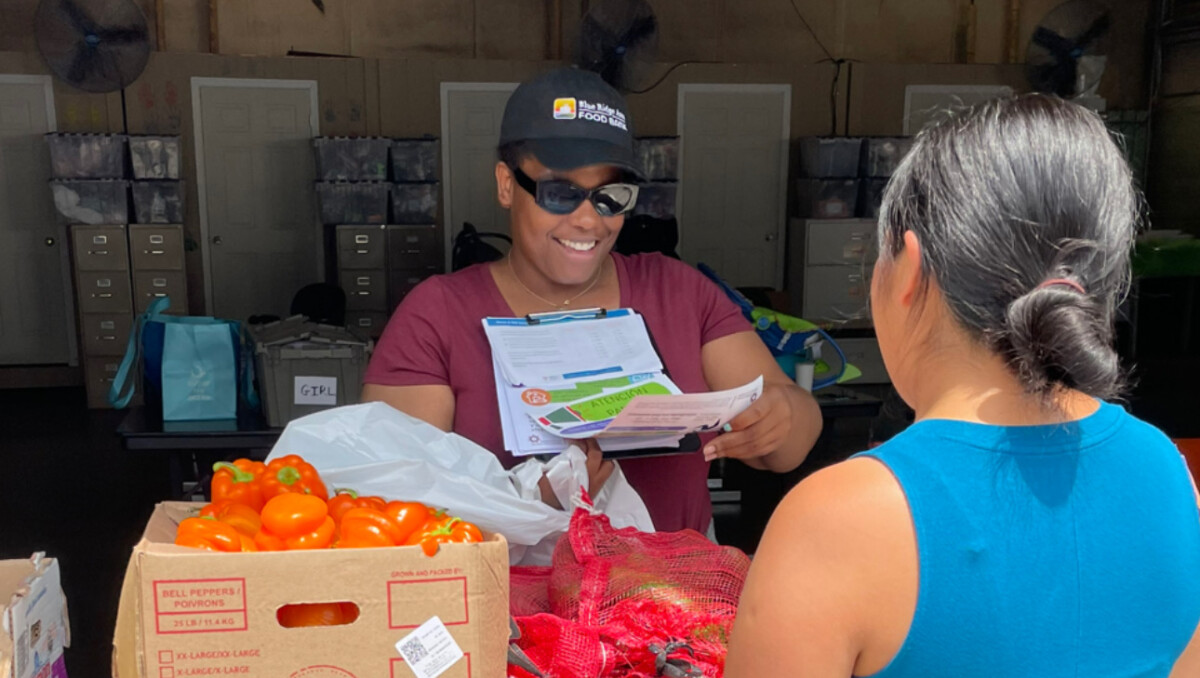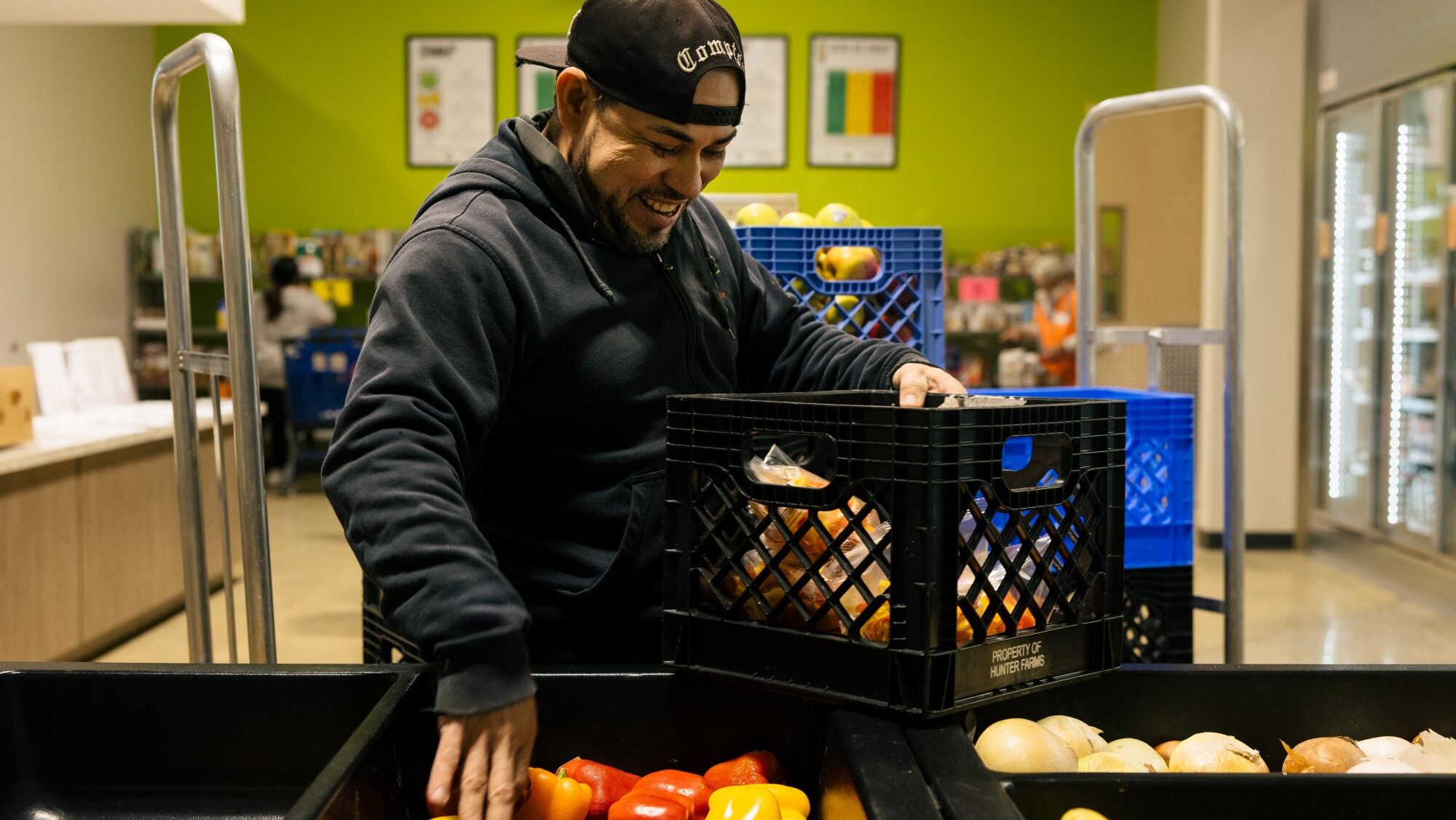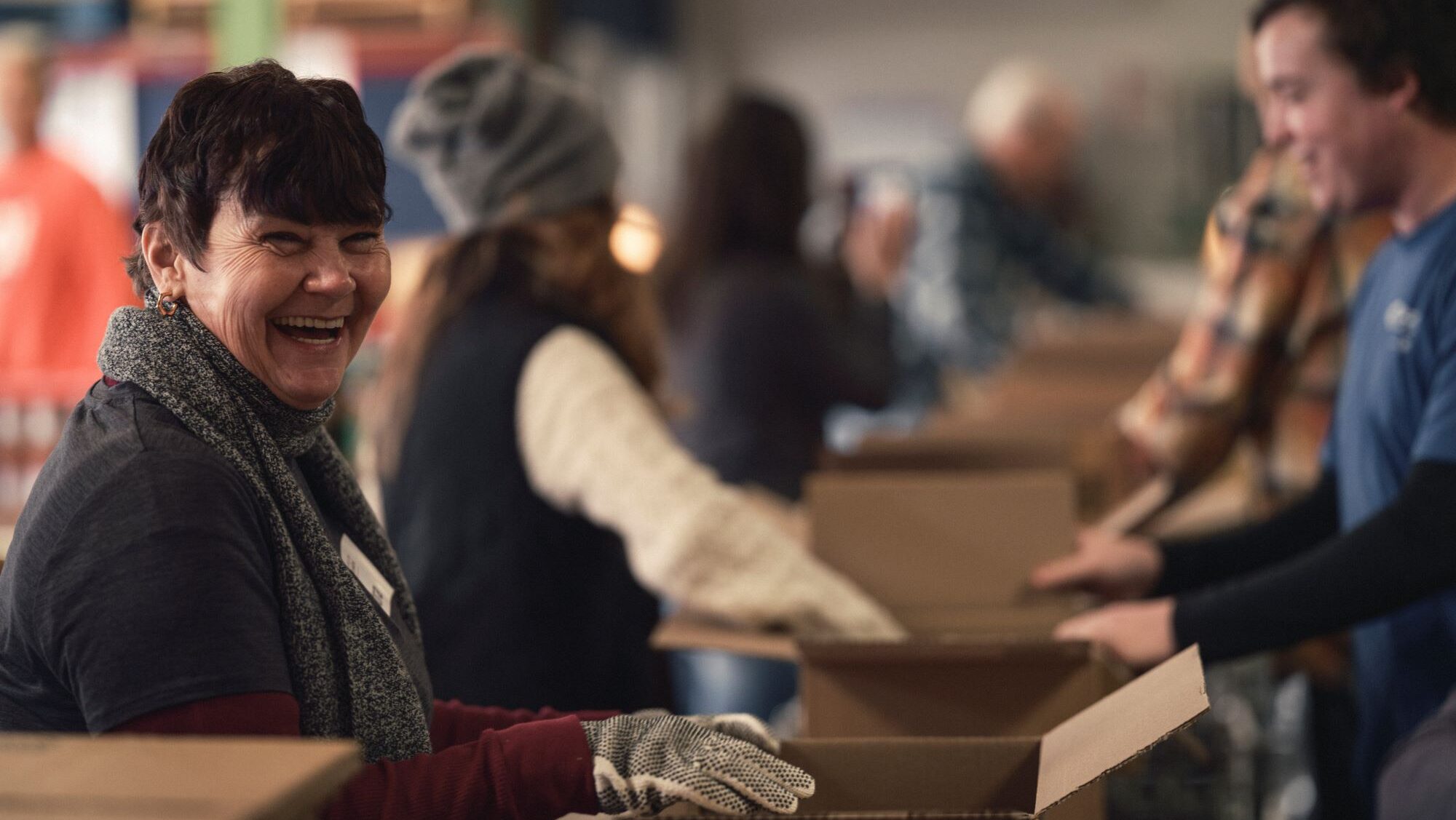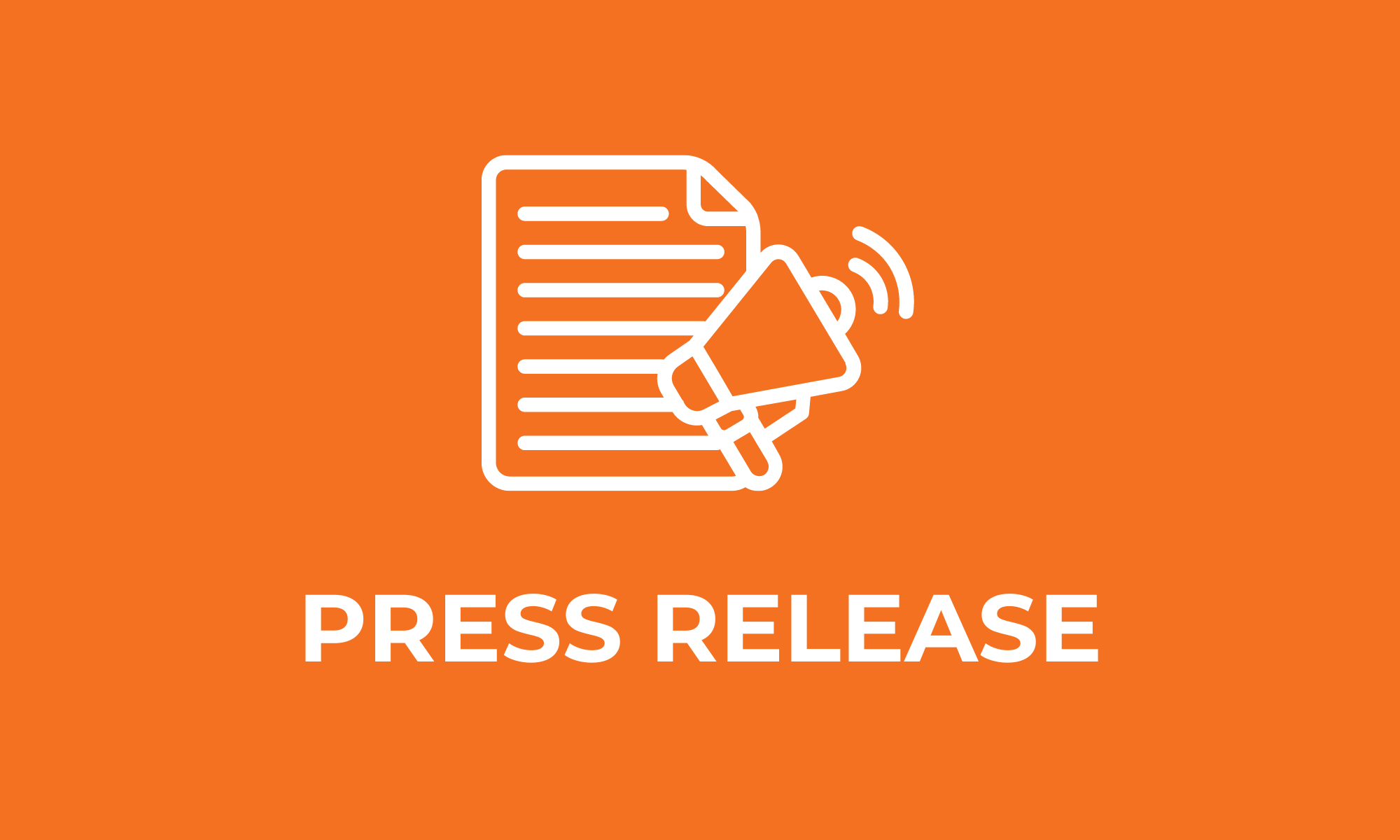Food distribution is and always will be at the core of the Blue Ridge Area Food Bank’s work. However, these activities alone will not end hunger in our region.
Hunger is a complex issue linked closely to lack of money. So, the Food Bank has made a strategic decision to connect neighbors with resources that support their food security, health, and financial well-being.
This effort is in addition to our core mission. We will always be about food first. But we must do more to break the cycle of poverty that so many families experience.
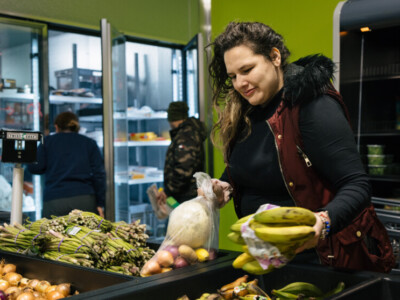
Meet Gabby
Every week, Gabby comes to Loudoun Hunger Relief—a Food Bank partner pantry in Leesburg, VA—to help provide for her family of five. As a small business owner living in an expensive area, financial stressors like childcare, rent, and rising grocery costs are taking a toll.
“Times are hard. Food prices are going up. And there’s not a lot of work like it was before,” she explains, pointing out that prices are going up, but the wages and benefits her family depended on during the pandemic didn’t increase. Until March of 2023, she received around $400 in SNAP and WIC, but now it’s only $150. “So, any little bit really helps,” Gabby shared. “I have a baby and a family to feed, you know?”
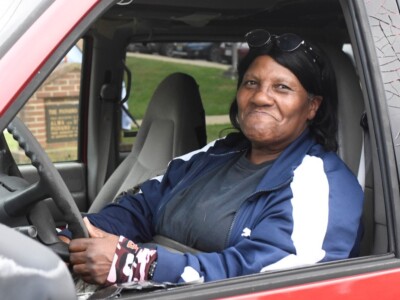
Meet Rose
“I’m starving to death. I’m hungry. I need to get some food,” Rose told us plainly as she waited in the line of cars to pick up food at The Community Table, a Food Bank partner serving Rockbridge County. With the rising cost of living, her Social Security benefits and part-time job don’t provide enough money to make ends meet.
Her poor health means eating the right foods is vital, and some of those are available at her local food pantry, the Rockbridge Area Relief Association’s Neighborhood Grocery. When we met, Rose was picking up a hot meal from The Community Table, saying, “I really like coming here. They serve really good food,” and “It really helps.”
Through our work we are well positioned to help people lift themselves out of poverty. Here’s how:
1. Encouraging public benefit access:
- We educate and encourage our guests to apply for essential public benefits such as medical and mental health care, educational programs, the Supplemental Nutrition Assistance Program (SNAP), Special Supplemental Nutrition Program for Women, Infants and Children (WIC), and various other community programs and services.
- We partner with organizations to aid guests in applying for public benefits like these.
2. Partnering for comprehensive support:
- For example, peer-led SNAP education and enrollment assistants help guests at local food pantries, the University of Virginia, James Madison University, and other partners.
- Our partnership with Sin Barreras enhances our outreach to Spanish speakers with eligibility screening and application assistance.
3. Forming alliances with other community organizations:
- Aligning with outside programs that help provide housing, transportation, employment, healthcare, legal and other services means our guests are closer to the services they need, while we continue to do our core work.
- The Food Bank employs a Public Benefits Outreach Manager who trains partners and volunteers to help guests apply for public benefits. We also help guests connect to other social services at partner food pantry sites or at our own program sites.
4. Advocating for change:
- Engaging at the state and national levels, we advocate for systemic changes to improve local communities and enhance the overall quality of life.
- We use our connections with influencers and lawmakers to push for meaningful change to help more Virginians thrive.
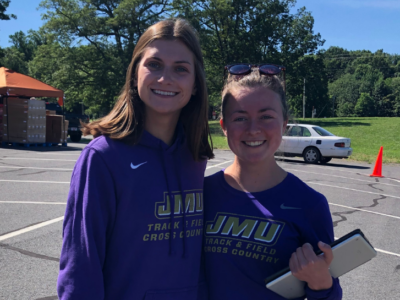
SNAP education and enrollment assistants from James Madison University help guests at a recent Mobile Food Pantry distribution.
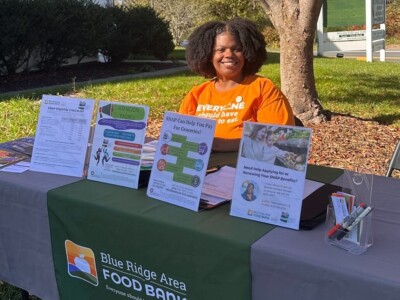
In her role for the Food Bank, Monica Kelley, Public Benefits Outreach Manager, helps guests access SNAP benefits (formerly known as Food Stamps).
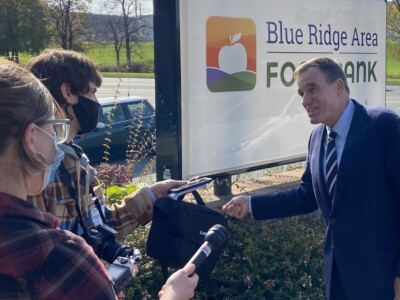
Senator Mark Warner visited the the Food Bank in 2021 to hear from food access leaders about how they responded to the COVID-19 crisis.
Addressing the core causes of food insecurity for the future
The Food Bank’s commitment to supporting household financial stability is a strategic shift. At this point in our long history, we are doing even more to address the main causes of food insecurity and connect people with resources that can bring lasting change.
This is one of four strategic goals addressed in our current five-year roadmap. Read more about our strategic plan here.
 Chew On This
Chew On This
